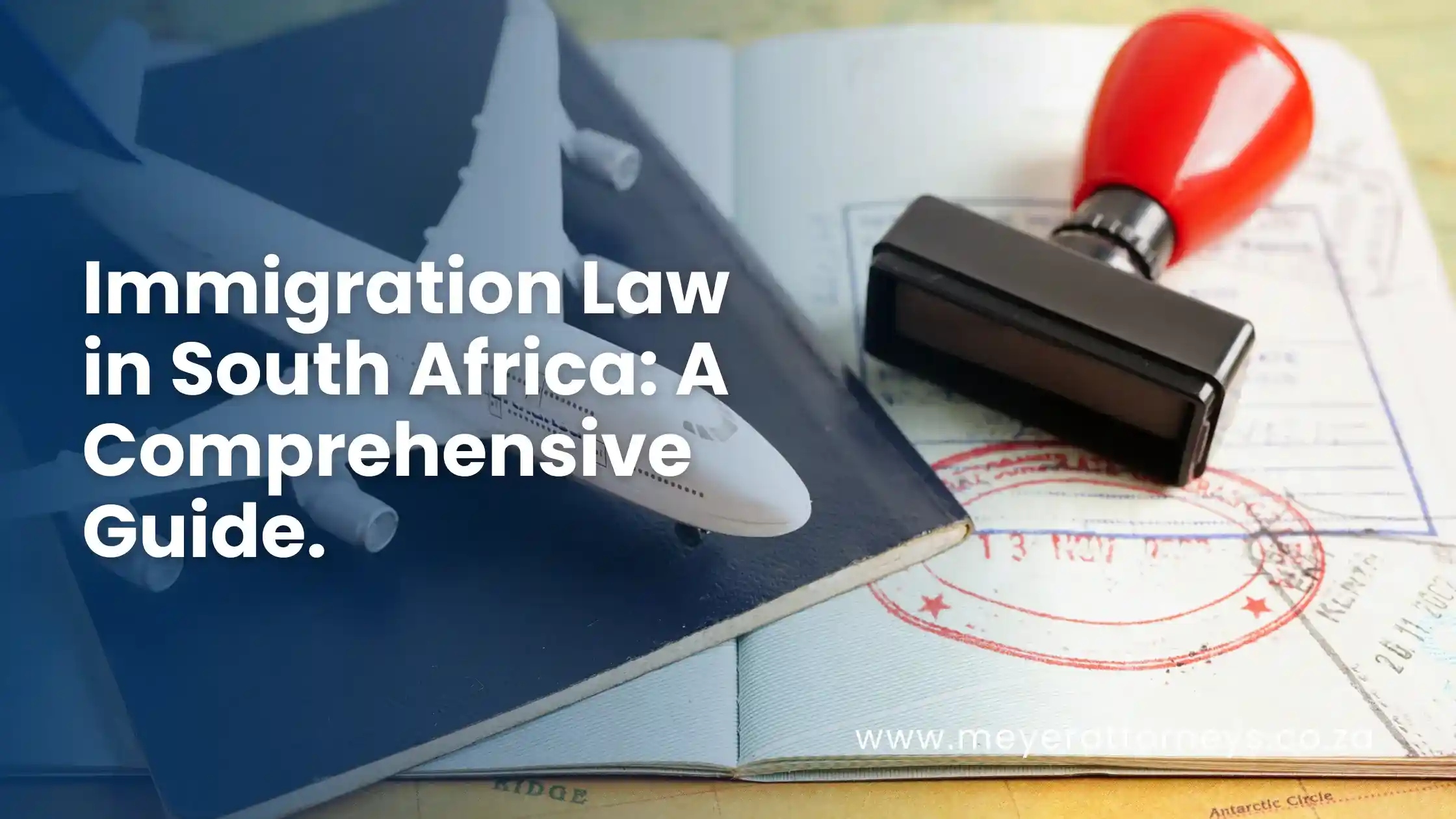Immigration Law in SA.

Immigration, what you will need to know.
Immigration law in South Africa is a complex legal framework that governs the entry, residence, and status of foreign nationals in the country. Understanding the rules, procedures, and requirements associated with immigration is essential for both potential immigrants and those already residing in South Africa. This article provides a comprehensive guide to immigration law in South Africa, including various visa categories, the application process, and key considerations.
Visa categories and immigration.
South Africa offers various visa categories designed to cater to specific immigration purposes. These categories encompass a wide range of objectives and include, but are not limited to:
- Visitor’s Visa: For short-term visits, tourism, or business purposes.
- Study Visa: For foreign students enrolled in South African educational institutions.
- Work Visa: This visa is for individuals seeking employment in South Africa. Various work visa categories cater to specific professions and skill sets.
- Retirement Visa: For retirees who can prove they have the financial means to support themselves in South Africa.
- Spousal and Dependent Visas: These visas are issued to the family members of South African citizens or permanent residents.
- Permanent Residence Permit: Granted to foreign nationals who meet specific requirements and have been legally residing in South Africa.
- Asylum Seeker and Refugee Status: This status is for individuals fleeing persecution or conflict in their home countries and seeking protection in South Africa.
Application process.
Immigration is not easy. The application process for a South African visa can be intricate and time-consuming, often requiring the submission of various documents, forms, and fees. Here are the general steps:
- Determine the Appropriate Visa Type: The first step is to identify the visa category that matches your purpose for coming to South Africa.
- Gather Required Documentation: Compile all the necessary documents, including a valid passport, proof of financial means, medical reports, and police clearance certificates.
- Submit the Application: Depending on your location, you can apply at the nearest South African embassy or consulate. In some cases, applications can be submitted online.
- Biometrics and Interviews: Some visa categories may require you to undergo biometric testing and interviews.
- Processing Time: Processing times vary depending on the type of visa and the volume of applications. Be prepared for potential delays.
- Notification: Once a decision is made, you will be notified, either approving or denying your visa application.
- Visa Issuance: If approved, you will receive a visa in your passport. Ensure you understand the visa’s conditions and validity period.
Key considerations.
- Visa Overstay: Staying in South Africa beyond the expiration date of your visa is illegal and can lead to deportation and future immigration difficulties.
- Legal Assistance: In complex cases, seeking legal assistance or advice from immigration experts can be beneficial.
- Changing Visa Status: You may be able to change your visa status within South Africa in some cases, but it’s crucial to understand the regulations surrounding such changes.
- Immigration Laws Are Subject to Change: Be aware that immigration laws and policies can change. Staying informed about updates and amendments is essential.
In conclusion.
Immigration law in South Africa is a multifaceted system with various visa categories to accommodate various immigration purposes. Understanding the right visa category for your situation and navigating the application process with due diligence is essential. It is advisable to seek expert advice, particularly in complex cases, to ensure a smoother and more successful immigration process. South Africa remains a diverse and welcoming country, offering opportunities for a wide range of people from different backgrounds and with various objectives.
Considering cross-border adoption, please click here.
If you would like more information about immigration procedure click here.
If your query is work-related click here.
This article is a general information sheet and should not be used or relied on as legal or other professional advice. No liability can be accepted for errors, omissions, loss, or damage arising from reliance upon any information herein. Don’t hesitate to contact Meyer and Partners Attorneys Incorporated if you require further information or specific and detailed advice. Errors and omissions excepted (E&OE)